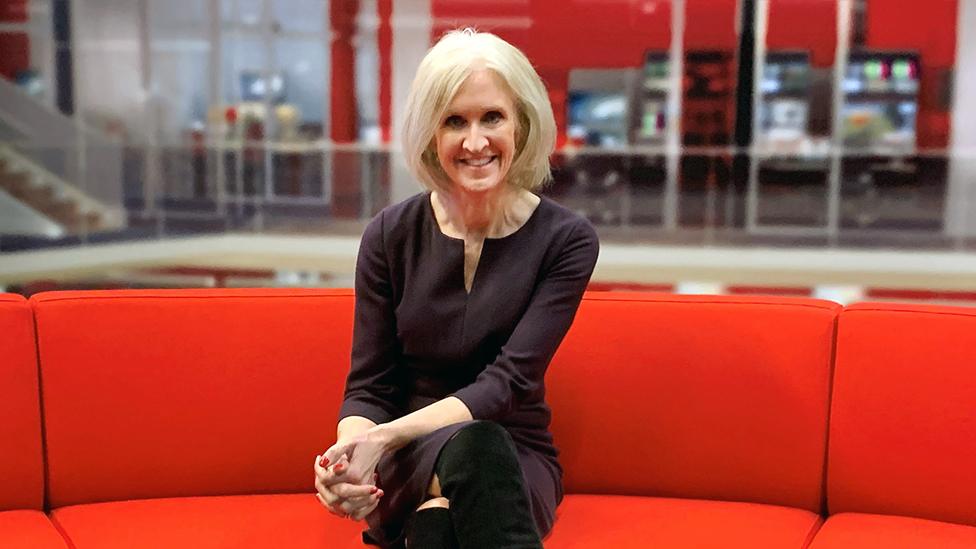'How do you tell your children you have cancer?'
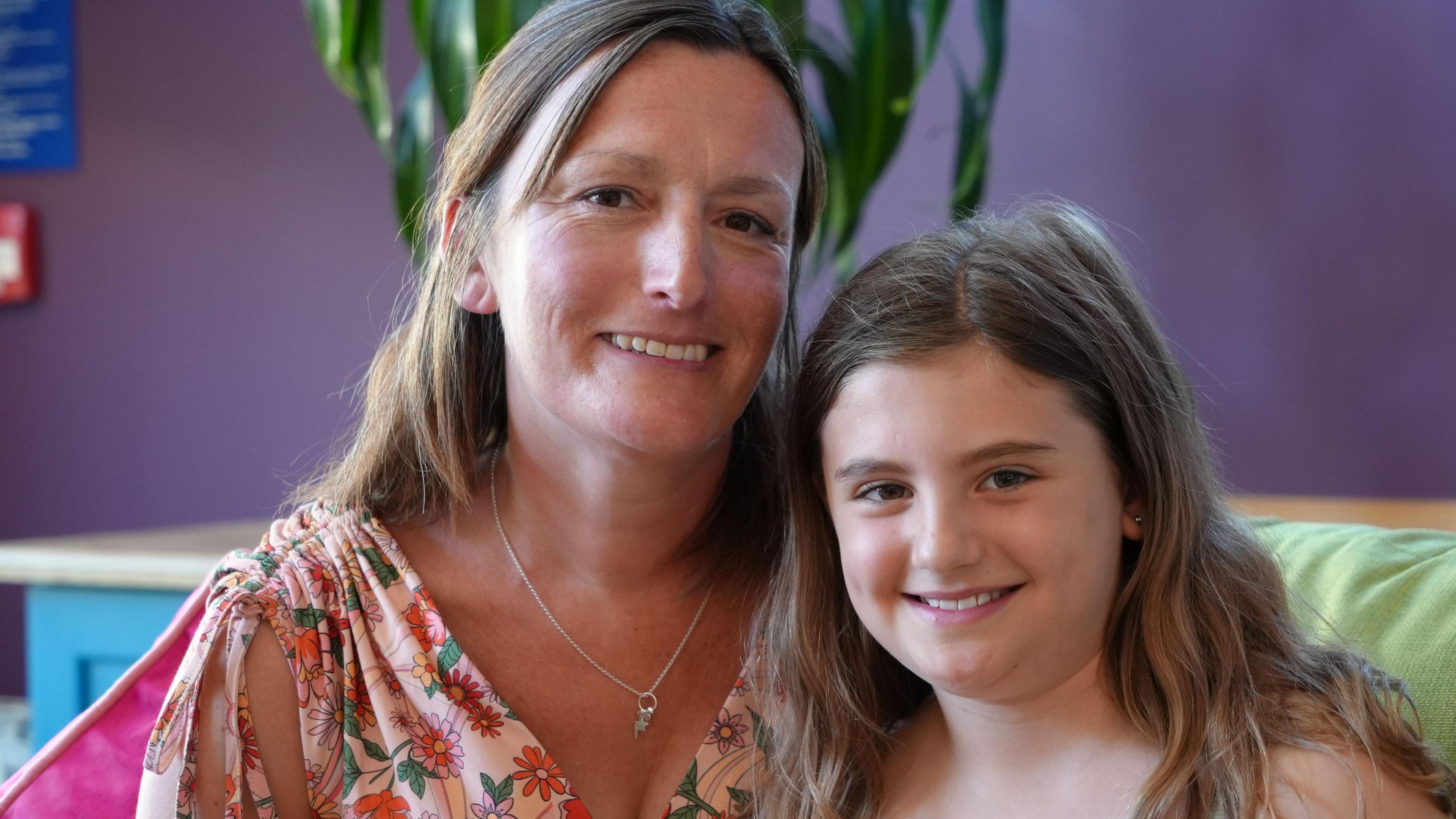
Cancer patient Ali says she has always been very honest with her daughter Esmae
- Published
BBC presenter Amelia Reynolds was diagnosed with bowel cancer three years ago. After having chemotherapy and radiotherapy, she was fortunately given the all clear. Here, in her own words, she talks about one of the most difficult conversations a parent can ever have - telling their children they have cancer.
A cancer diagnosis can be extremely hard to explain to a child. And like many parents, when I first heard the words 'I'm sorry it is cancer', my immediate thought was 'what on earth am I going to say to my children?'.
Ali Howell, 42, had the same reaction. In fact, in many ways, Ali's story is similar to mine. Three years ago, pretty much at the end of the second wave of Covid, she found blood in her stools and decided to get checked.
"I went for what I thought was a routine colonoscopy and almost thought I was wasting NHS time, because I felt maybe there were other people that need this more than me and then I was taken out of the proceedure and taken into a side room and was told they had found something that they probably thought was cancerous," she says.
I ended up in a side room like that too. But after various tests I was told treatment could cure my cancer. Ali's news was different and devastating.
"Unfortunately when they did further scans they found that it had already spread to my liver and I was diagnosed with secondary stage four bowel cancer," she says.
"They told me they could treat it to extend my life I suppose, but there wasn't any way of getting rid of the cancer. It was one of those out-of-body moments where you can't quite believe what you're hearing. At that point I was given a prognosis of about 18 months."
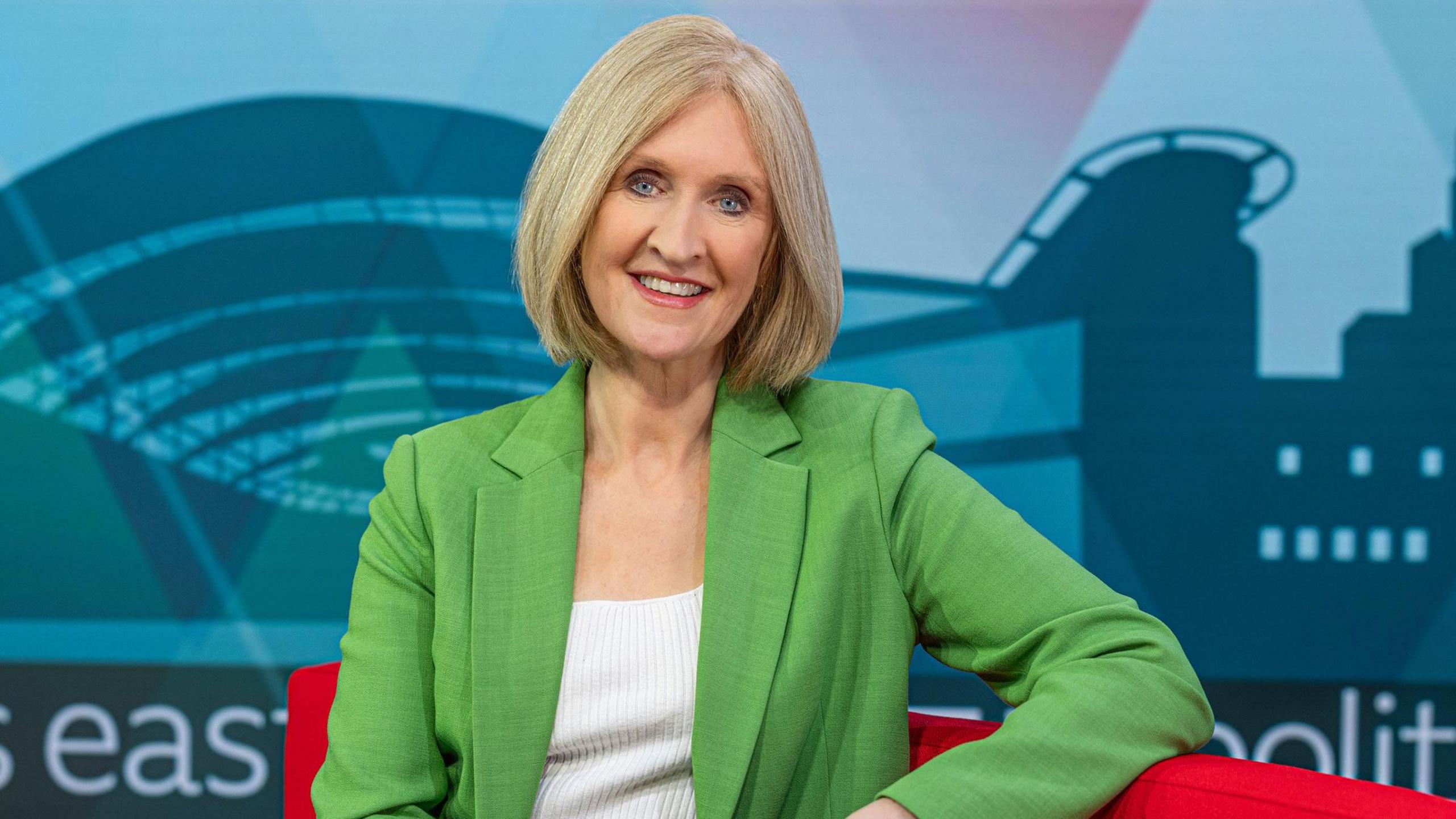
BBC presenter Amelia Reynolds says it is comforting to know support is on hand for family members
'It is important to be honest'
That was three years ago and as Ali says, "I'm still here". But her focus in that moment was her children. Her daughter Esmae was five at the time, her son Ollie was 10.
"That was the thing that broke me. It wasn't the thought about what would happen to me, but rather about what would happen to my children and how this would it affect them. That was the thing that hit me. That made it real."
Ali and her husband decided it was really important to be honest. Not to hide anything and importantly to use the word cancer.
"We explained to them that actually the doctors were going to do everything to help me and treat me, but they couldn't get rid of it and it was something we were going to live with and that meant I probably wasn't going to be around for a long time."
'The doors are always open'
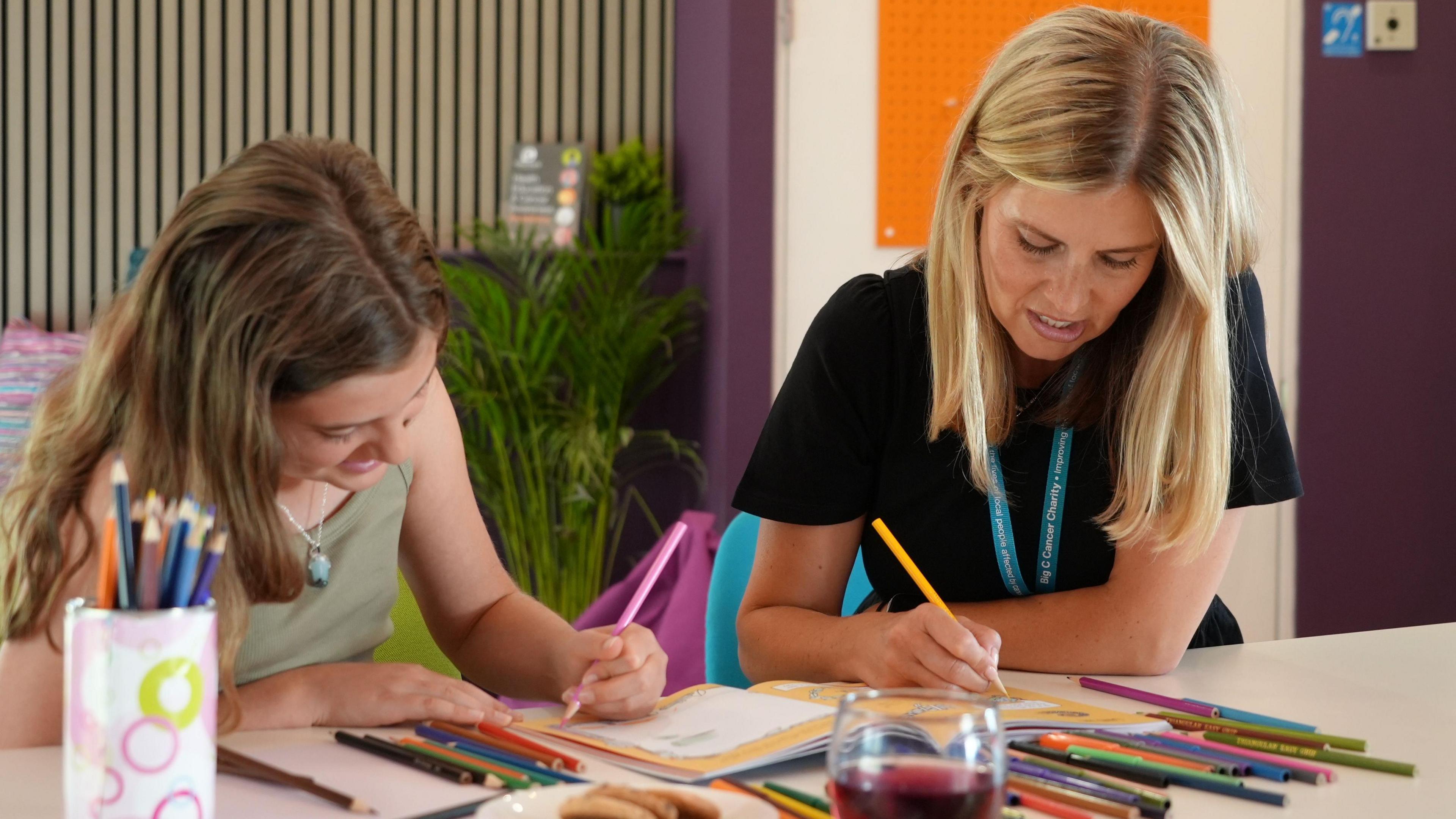
Esmae enjoys colouring with Emma, one of the support workers at a new service for families affected by cancer
It is a conversation no parent ever wants to have. It is difficult. It is scary. And that is why a new service is being launched by the Big C Cancer charity, offering help specifically for families.
The charity supports children across the region, including those getting treatment at Addenbrooke's Hospital in Cambridge and in Suffolk.
Ali's daughter Esmae, who is now nine, is already benefitting. In a brightly coloured room with comfy sofas, cushions and toys, she has been playing hopscotch while I have been talking to Ali. Her face is bright, her manner relaxed, she is happy to chat and eager I spell her name correctly. I promise her I will.
"I like doing colouring with Emma and I like doing things like crafty things and talking with Emma and doing games on the floor," she says.
Emma is one of the support workers along with Corinne Cambridge who explains what the new service will offer.
"We know that when a young person has cancer, or a parent has cancer, it affects the whole family. And we are going to support them through having a safe place to play, having a space for parents to get some support with maybe some of our other services," she says.
"We also have an educational psychologist who has joined our team and he will be providing holisitic support when it comes to helping children to navigate school going through a cancer journey."
The Big C centre is on the site of the Norfolk and Norwich hospital. In fact it is just a few steps from the door that leads to the wards where both Ali and I received treatment. But you do not have to be given chemotherapy and radiotherapy there in order to access the help and support on offer. The doors, say the charity, are always open.
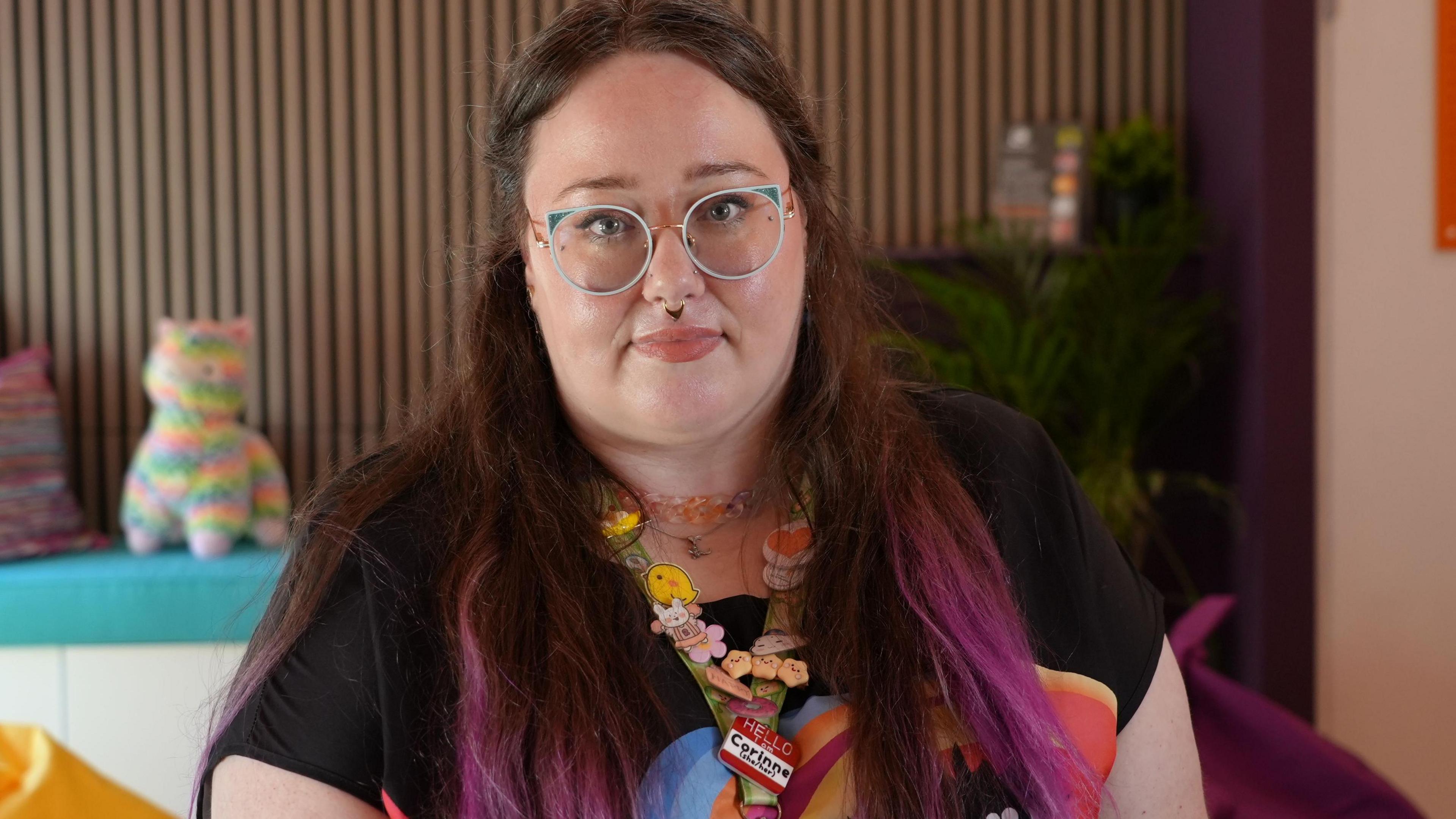
Support worker Corinne Cambridge says a cancer diagnosis affects the whole family
'Children don't need to hide their feelings'
Money for the service has been raised by a group called the Ladies in League Against Cancer (LILAC), a voluntary fundraising group, but Esmae herself has also done her bit. She points to where her hair used to be, by her waist. She had it cut and donated it for a wig. And for a whole school term she walked to school and back everyday, even when it rained.
"For the 'whatever the weather walk' I raised £550 for the Big C charity to help with treatments and things here and helping to get more stuff for kids that come here," she adds.
Esmae tells me she wants to be a Macmillan cancer nurse when she grows up. That is something Ali knows she is not going to live to see, but she is making the most of the here and now.
"We laugh together, we cry together, you know we have moments of real sadness when we sit together and the children say 'we feel really scared' or 'we feel sad' and we say 'we do too' and those feelings are ok.
"That's not something they need to hide or worry about and we'll feel like that together. It's very much a case of day by day. Today is today, we get to do today, whatever that looks like. And actually it has made us realise that none of us are entitled to those days. So we get to do those days and we make the most of them, when we can."
And that is something all of us who have had a cancer diagnosis try to do. Nothing is certain. It feels like it never will be again. I am currently waiting for the results of my latest MRI and CT scans, which I have every six months at the moment. But I do so in hope and in the knowledge that there is support on hand, for both me and my family.
Get in touch
Do you have a story suggestion for Norfolk?
Follow Norfolk news on BBC Sounds, Facebook, external, Instagram, external and X, external.
- Published17 November 2021
